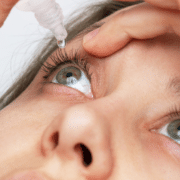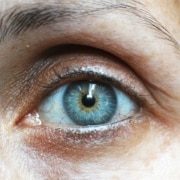What is the Connection Between Hypertension and Changes in Vision?
As we age, it’s natural to experience changes in our vision, but did you know that high blood pressure, also known as hypertension, can also have an impact on our eyesight? If you or someone you know has been diagnosed with hypertension, you may be curious about the connection between this condition and changes in vision.
Hypertension affects the blood vessels, causing them to narrow and become less elastic. This can damage the blood vessels in the eyes, leading to a variety of vision problems, including blurred vision, double vision, and even vision loss. It’s important to manage hypertension to prevent these potential complications.
If you’re still reading, you may be wondering what steps you can take to manage hypertension and protect your vision. In the following paragraphs, I’ll provide some practical tips for controlling hypertension and minimizing its impact on your eyesight.
What are the symptoms of hypertensive retinopathy?
When hypertension goes untreated or uncontrolled, it can lead to a condition called hypertensive retinopathy, which damages the small blood vessels in the retina. The retina is the part of the eye responsible for processing light into visual images, so any damage to it can significantly impact a person’s vision.
Symptoms of hypertensive retinopathy include blurred vision, double vision, headaches, and eye discomfort. In severe cases, it can cause vision loss and blindness.
Hypertensive retinopathy progresses in stages, with each stage indicating a more severe level of damage to the retina. In the early stages, the symptoms may not be noticeable, but as the condition progresses, symptoms can become more severe. Regular eye exams with a trained eyecare professional can help catch hypertensive retinopathy early on and prevent further damage.
It’s also worth noting that hypertensive retinopathy is not the only eye condition that can be caused by hypertension. Other conditions include choroidopathy, optic neuropathy, and central serous chorioretinopathy. Choroidopathy is a condition in which the blood vessels in the choroid layer of the eye become damaged. The choroid is a layer of blood vessels and connective tissue that provides oxygen and nutrients to the outer layers of the retina. When the choroid is damaged, it can lead to vision problems such as distorted or blurred vision.
When visiting your eye doctor, always inform them if you have a history of high blood pressure.
Can hypertension be treated to prevent changes in vision?
Yes, hypertension can be treated with lifestyle changes and medication to prevent changes in vision. Lifestyle changes that can help include maintaining a healthy diet, getting regular exercise, quitting smoking, and reducing alcohol consumption. Medications such as ACE inhibitors, beta-blockers, and diuretics can also be prescribed to help lower blood pressure.
It’s important to monitor blood pressure regularly and work with a healthcare professional to develop a treatment plan. In some cases, it may take a combination of lifestyle changes and medication to effectively manage hypertension.
It’s also important to note that hypertension is a chronic condition and may require lifelong management. Regular check-ins with a healthcare professional can help ensure that blood pressure is being effectively managed and prevent changes in vision and other complications associated with hypertension.
Steps You Can Take
If you have high blood pressure, it is essential to have regular eye exams to monitor for any vision changes or damage to the eyes. In some cases, early detection and treatment of hypertension can prevent vision problems from developing or worsening. It is crucial to actively manage high blood pressure and have regular eye exams to prevent or monitor for any vision changes.
If you have hypertension and are experiencing changes in your vision, seek medical attention immediately. Schedule an appointment with your primary care physician to get your blood pressure checked and consult your eye doctor to discuss any vision changes you have noticed. By taking proactive steps to manage your blood pressure and getting regular eye exams, you can protect your vision and maintain good overall health. Don’t delay – prioritize your health and book that appointment today!
At Kirman Eye we can provide the best technology, the latest scientific information, and the highest quality treatment available. We are always happy to answer your questions and will work with you to design a plan that is effective at helping you manage your developing situation, to provide the best possible results.
Your partners at Kirman Eye are passionately dedicated to providing our patients with the best and most effective eye-care options available when anticipating all of your optical needs.
Contact us to work with you today!





